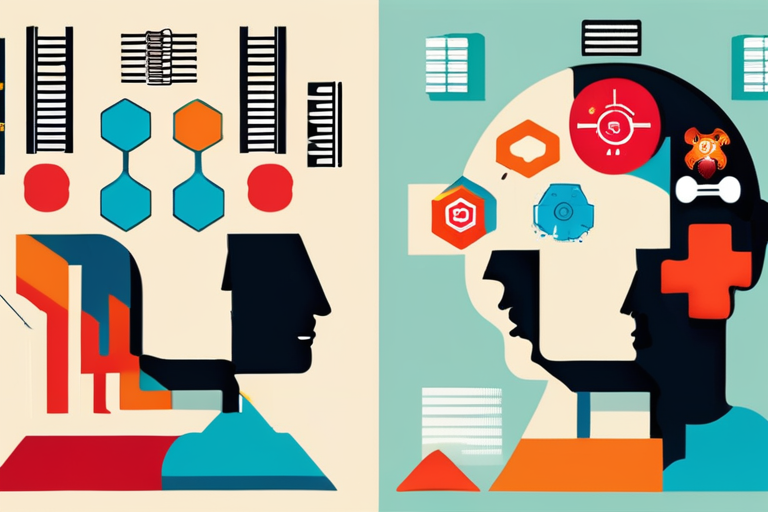Evolution of Intelligence May Have Come at a Cost
A groundbreaking study has shed light on the evolution of human intelligence, revealing that variants linked to higher cognitive abilities appeared around 500,000 years ago, closely followed by mutations associated with mental illness. The findings suggest a trade-off in brain evolution between intelligence and psychiatric issues.
According to Ilan Libedinsky at the Center for Neurogenomics and Cognitive Research in Amsterdam, "The advances in cognition may have come at the price of making our brains more vulnerable to mental disorders." This observation is based on a timeline of genetic changes in millions of years of human evolution, which shows that mutations related to psychiatric disorders involve part of the genome also linked to intelligence.
The study's lead author notes that humans split from their closest living relatives, chimpanzees and bonobos, more than 5 million years ago. Since then, our brains have tripled in size, with the fastest growth occurring over the past 2 million years. While fossils provide valuable insights into brain size and shape changes, they cannot reveal the underlying genetic mechanisms driving these developments.
Libedinsky emphasizes that "there's an overlap between the parts of the genome involved in intelligence and those related to psychiatric disorders." This overlap suggests a complex interplay between cognitive abilities and mental health, with each influencing the other in subtle yet significant ways.
The implications of this study are far-reaching. As Dr. Libedinsky notes, "Understanding the trade-offs in brain evolution can help us better appreciate the delicate balance between intelligence and mental well-being." This knowledge may also inform strategies for mitigating the risk of mental illness, particularly in individuals with a family history of psychiatric disorders.
The study's findings have sparked debate among experts in the field. Some argue that the relationship between intelligence and mental health is more nuanced than previously thought, while others caution against drawing conclusions based on a single study.
As research continues to unravel the mysteries of human evolution, this study serves as a reminder of the intricate relationships between cognitive abilities, genetic predispositions, and environmental factors. By exploring these connections, scientists hope to gain a deeper understanding of what it means to be human and how we can better support our mental health in the face of an increasingly complex world.
Background
Human evolution has been shaped by millions of years of natural selection, with each species adapting to its environment in unique ways. The emergence of Homo sapiens is a relatively recent development, with our ancestors evolving from a common ancestor with chimpanzees and bonobos around 5-7 million years ago.
Additional Perspectives
Dr. Libedinsky's colleague at the Center for Neurogenomics and Cognitive Research notes that "this study highlights the importance of considering the complex interplay between genetic and environmental factors in shaping human cognition and mental health." Another expert in the field suggests that "further research is needed to fully understand the relationship between intelligence and mental illness, but this study provides a valuable starting point for exploring these connections."
Current Status and Next Developments
The study's findings have sparked interest among researchers worldwide, with several teams already planning follow-up studies to explore the relationship between cognitive abilities and mental health in more depth. As Dr. Libedinsky notes, "this is just the beginning of a new era of research into human evolution and its implications for our understanding of intelligence and mental well-being."
*Reporting by Newscientist.*



 Hoppi
Hoppi
 Hoppi
Hoppi

 Hoppi
Hoppi

 Hoppi
Hoppi

 Hoppi
Hoppi

 Hoppi
Hoppi










